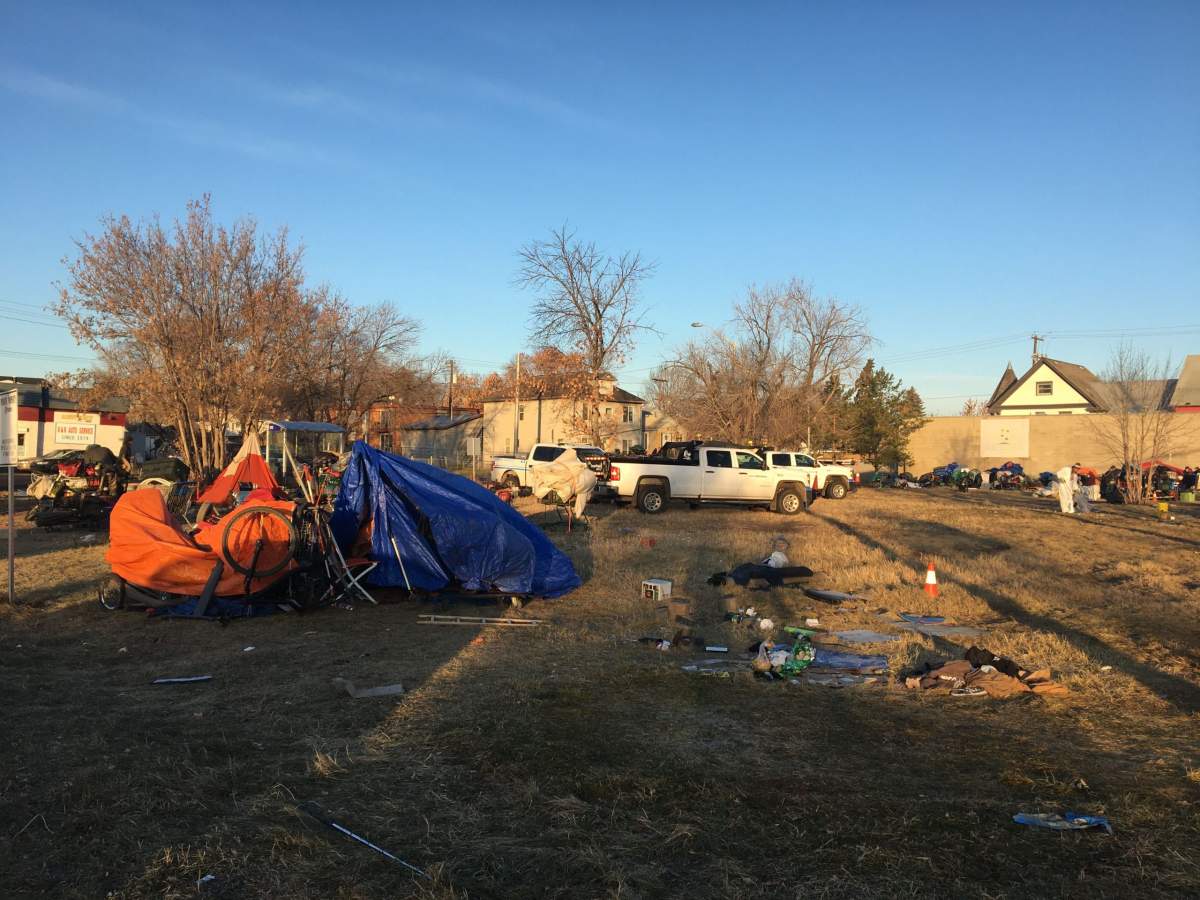City housing staff have a new proposal to present to Edmonton city councillors that they hope will get people out of tent cities that pop up, and get them on their way to something more permanent.

The idea of bridge housing was previewed at Thursday’s meeting of the police commission, and will be presented in more detail at the Dec. 4 meeting of council’s community and public services committee.
This is something more than shelters, Christel Kjenner, the city’s housing director, said. It’s a middle step that individuals can use while they work towards something permanent.
“Bridge housing would help improve the efficiency of our housing process by providing a place, especially for people who are unsheltered who have to move around a lot, to stay for 30-90 days while they’re working through that housing process and it would help us expedite that process and make it go faster.”
Many of these people, she said, don’t have the proper ID to satisfy apartment owners, or need bank accounts set up, so the temporary help is needed from social service providers to help them get into permanent supportive housing.
Agencies would bring several people together with separate sleeping quarters in a pre-fab built large unit.
“We’ve looked at a number of different construction technologies, modular off-site construction,” Kjenner told reporters. “There’s been suggestions around using like a Sprung tent, or workforce housing that’s been re-purposed.”
Commissioners heard that makeshift camps, both in the river valley and as tent cities emerging in the downtown doubled in 2019, leave a cost of $1.8 million for the city to manage.

Get breaking National news
“The dam is breaking so people like the shelter system, the social service agencies, you’re dealing with the person standing on the street, and the city more than recognizes that what we’re doing is to some degree a Band-Aid solution,” branch manager for social development Jackie Foord said.
“Right now we have 500 people sleeping on the streets, what do we do?”
The housing need in Edmonton sees 1,729 individuals experiencing chronic homelessness, the report said.
“That’s a high priority but we also have 45,000 others who need a place to live that they can actually afford,” said Foord. “So while we’re all scrambling just to keep up with the demand as it is today, we’re not coming close to that either. So the prevention side, to some degree, almost feels like a luxury right now because there is a crisis.”
The numbers represent low-income renter households who spend more than 30 per cent of their before-tax annual income on shelter.
Police chief Dale McFee said the city is making good progress.
“What I heard is, we lack the transition housing to set up effective ‘housing first.'”
“We’re probably the number one responding agency so we’ve got to put our voice to the things that matter and that’s something we’re working on.
“Somebody came to me and said, ‘Chief, how do you police the homeless?’ And I asked, does that even make sense? But that’s really what we’re kind of doing, right?”
McFee said what’s needed is some social solutions to keep these people out of the justice system, because “that’s where the bulk of the costs are.”
Community services committee will set some targets on Dec. 4, and then city staff will come back in the ensuing weeks with land options and a budget.
“If council asks us to go in this direction then absolutely we’d be looking to identify available land that the city already has, or lots that can be purchased, or existing buildings that can be purchased,” Kjenner said.







Comments